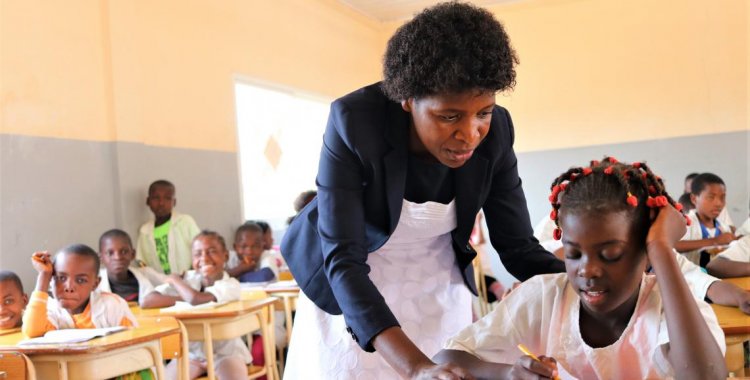The study, made available to Agência Lusa, was carried out by Mosaiko - Institute for Citizenship and the Network of Education for All civil society organizations (Rede EPT-Angola), in 70 schools in nine provinces, between July and August this year.
The return to face-to-face classes is scheduled from 5 October, in a phased manner, for the different degrees of education.
The "Diagnosis of Schools on Back to School Conditions" states that of the 70 primary and first cycle schools surveyed, mostly public (54), 93 percent indicated that they did not have all the conditions necessary to resume school. school activities with security, the lack of water, the number of taps available and the lack of bathrooms being the main constraints.
The majority of schools (53 percent) had only one or two bathrooms, with the average number of students in educational establishments participating in the diagnosis exceeding one thousand.
Only five schools replied that they were prepared: two reimbursed schools, in Luanda, and three public establishments (two in Huíla and one in Bengo).
Schools also reported limited access to water, either because of the number of taps (72 percent of schools have zero or one tap available), or because of irregular supply, identified in 60 percent of these spaces.
More than 50 percent of schools do not have piped water and 79 percent have alternative sources, such as a tank or cacimba (well).
To minimize the problem, about 44 percent of schools created alternative handwashing systems, especially drums with taps, but almost all said they were still insufficient.
Despite the difficulties, most schools are in favor of returning to face-to-face or semi-face-to-face classes to ensure the right to education and the protection of children, a position also defended by Rede EPT-Angola and Mosaiko.
Both institutions consider, in the report, that the closure of schools "leaves children and young people marginalized even further behind" in terms of access to education and learning.
They also emphasize that the school, in addition to teaching curriculum content "has other functions in the development of the child, such as socialization and protection for health and protection from threats to physical and psychological integrity".
Therefore, they recommend that the State create conditions for the regular supply of water in schools and increase the number of taps or the creation of alternative systems for washing hands with soap and water, as well as the creation of functional bathrooms.
The organizations also warn that it is necessary to guarantee "sufficient hygiene and biosafety material" to avoid contagion between students and teachers and to ensure that the disease does not spread.
Schools must have a sufficient number of employees to manage cleaning and physical distance, the authors of the study advise, who diagnosed "shortage or lack of cleaning employees".







